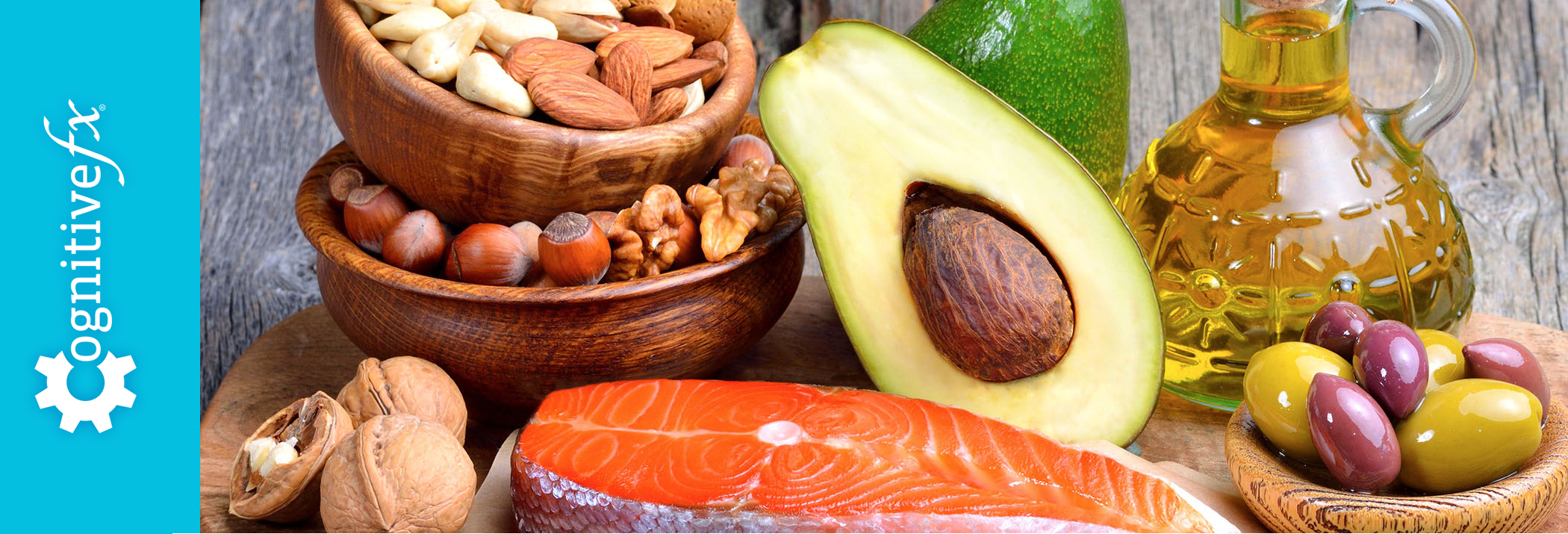Top 5 Foods for Brain Health
The brain is the most important organ in the human body. It regulates the profuse amount of information that the body needs to regulate itself. This includes comprehending pain levels, regulating...

Essential fatty acids seem to be a big fad right now. BCC Research states, “The global market for natural fatty acids sourced from vegetable oils, animal fats is projected to reach more than $25.7 billion in 2019.” But why? What is so important? What is so essential about them? Here’s the low-down.
Our bodies are good at synthesizing enzymes, nutrients, vitamins, and fats from our diets. Synthesizing, or the process of breaking food down, makes it so our bodies have the nutritional support they need to function at a high level every day. There are, however, some essential enzymes, nutrients, vitamins, and fats that our bodies cannot synthesize on their own, because our bodies can’t synthesize two, essential fatty acids, omega-3 and omega-6, taking supplements and increasing the foods that contain these essential fatty acids is vital for brain health.
It seemed like we all woke up one day, and these things called essential fatty acids were suddenly SO important. But why is that? First, let’s talk about what the heck these fatty acids are. These fats are found in plant-based food. They build omega-3s and omega-6s, or linoleic and alpha-linolenic acids, respectively. But why do we need them?
Omega-3s and omega-6s lower your risk of major chronic diseases, including heart disease and arthritis. They are used for reducing total cholesterol levels, lowering "bad" (LDL) cholesterol levels, and raising "good" (HDL) cholesterol levels. These fatty acids also aid in the maintenance of normal brain function throughout life. These fatty acids have been considered essential for brain development and function.
Omega 3s and omega 6s act in direct opposition of one another. Too much omega-6 can increase the risk of heart disease, while omega-3 can help reduce the risk of heart disease, yet we need them both forms of essential fatty acid. So what can we do about it?
The recommended ratio for omega 3s to omega 6s is 4:1. This ratio helps maintain optimal fatty absorption while ensuring none of either is lost. The omega-3 essential fatty acids, in particular, are one of the most beneficial groups of nutrients for your brain and overall health.
A well-planned diet rich in fruits, vegetables, nuts, seeds, and legumes will allow you to obtain plenty of these omega-6s and omega-3s for brain health benefits.
The brain is around 60% fat. Healthy fats like essential fatty acids help support the brain and its function. After a brain injury or concussion, many doctors recommend taking essential fatty acids to help support the brain during its crucial time of recovery. Healthy fats support brain function when it comes to neurotransmitters, the immune system, and more.
Studies have found that both omega-3s and omega-6s have an anti-inflammatory effect in the brain. For everyone, but particularly those who have had a brain injury, consuming the fatty acids omega-3s and omega-6s will help your brain after a concussion. Having enough essential fatty acids in your diet is key to supporting your body and mind.
For optimal brain health after a concussion, we encourage you to look at your diet and see if you need more essential fatty acids in your life. We know that to have a healthy life requires having a healthy brain. Many factors that play into supporting a healthy brain including drinking enough water, along with other brain health habits like getting enough sleep, getting proper exercise and so much more.
Overall, essential fatty acids have always been necessary, we didn’t know how important they were until somewhat recently. Incorporating essential fatty acids can be simple. Bring more foods rich in fatty acids into your diet, and you can also use supplements.
What other things are you doing to have a healthy brain and a healthy life?

The brain is the most important organ in the human body. It regulates the profuse amount of information that the body needs to regulate itself. This includes comprehending pain levels, regulating...

What you eat affects your health, whether you’ve sustained a traumatic brain injury or are in perfect health. But nutrition is especially important after a brain injury. Diet can be the difference...
Published peer-reviewed research shows that Cognitive FX treatment leads to meaningful symptom reduction in post-concussion symptoms for 77% of study participants. Cognitive FX is the only PCS clinic with third-party validated treatment outcomes.
READ FULL STUDYPublished peer-reviewed research shows that Cognitive FX treatment leads to meaningful symptom reduction in post-concussion symptoms for 77% of study participants. Cognitive FX is the only PCS clinic with third-party validated treatment outcomes.
READ FULL STUDY